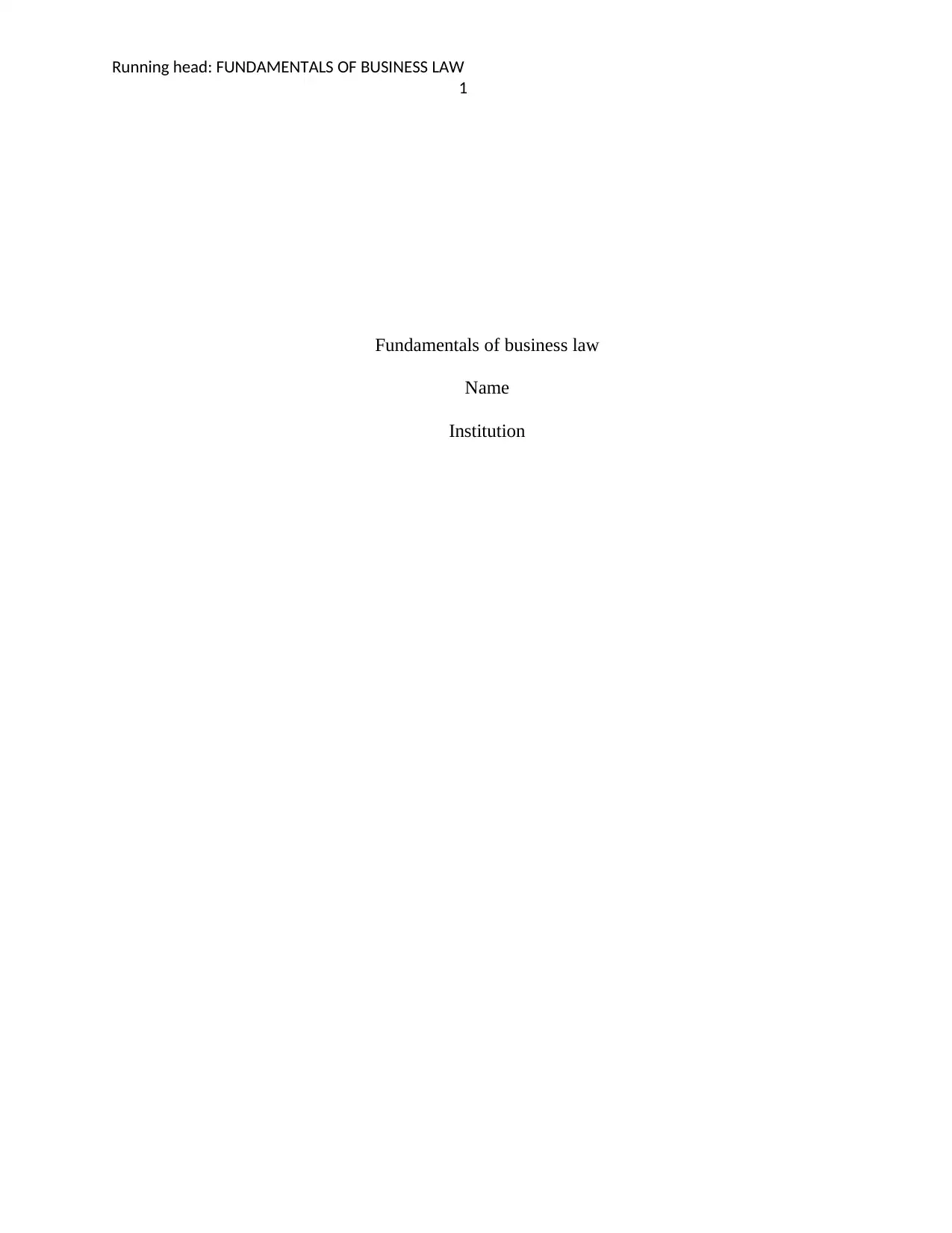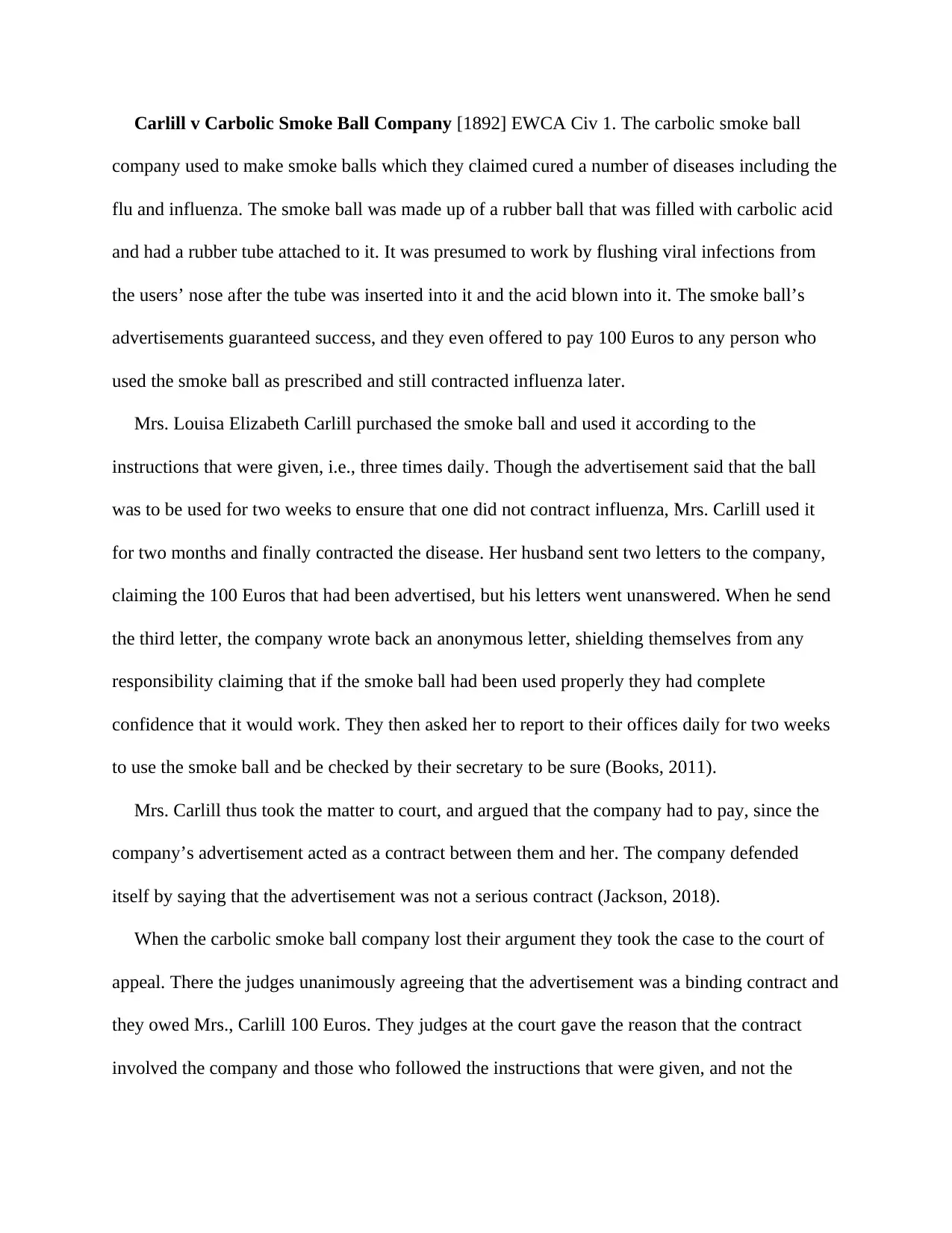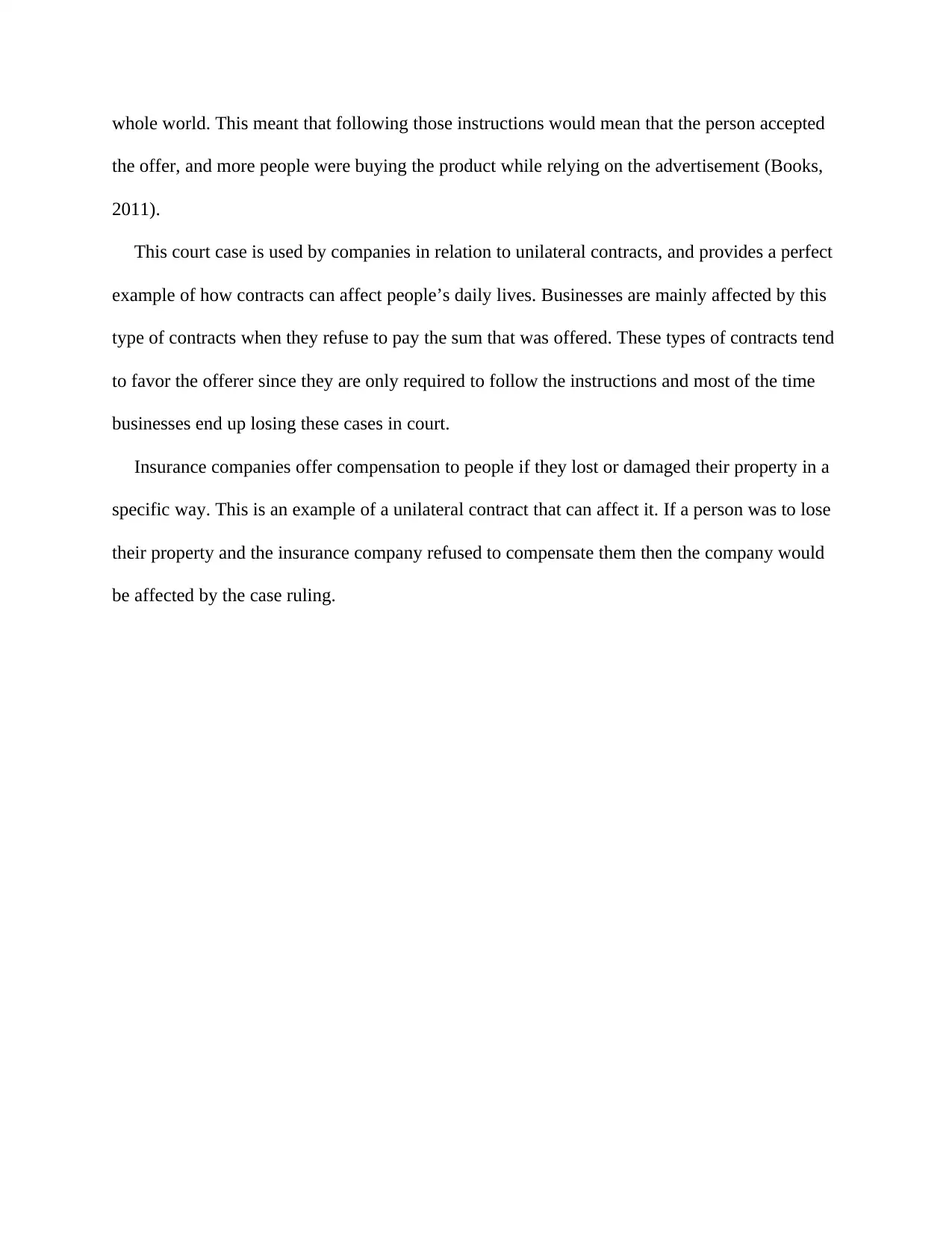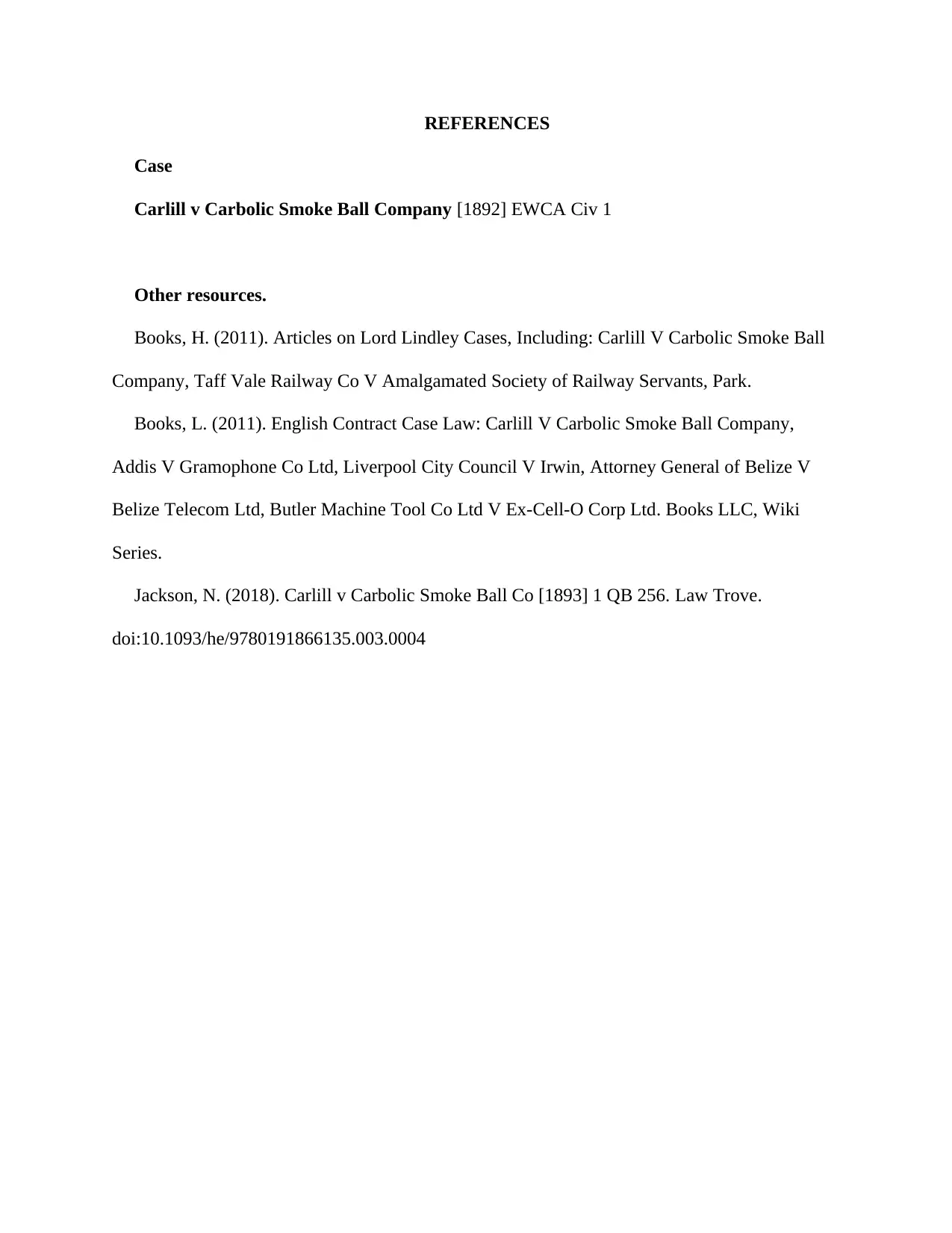Executive Briefing on Carlill v Carbolic Smoke Ball Company Case - Law
VerifiedAdded on 2022/10/19
|4
|720
|51
Report
AI Summary
This report provides an executive briefing on the landmark case of Carlill v. Carbolic Smoke Ball Company [1892] EWCA Civ 1, a crucial case in contract law. The case involved the Carbolic Smoke Ball Company's advertisement promising a reward to anyone who contracted influenza after using their product as directed. Mrs. Carlill, having used the smoke ball as prescribed and still contracting the flu, sued the company for the promised reward. The report summarizes the facts, the arguments presented by both sides, and the court's ruling, which found the advertisement to be a binding unilateral contract. The analysis highlights the case's significance for businesses, especially concerning unilateral contracts and the implications of refusing to honor offers made in advertisements. The report also touches on how such rulings can affect various industries, like insurance, which offer compensation based on specific conditions. This analysis is valuable for students studying business law and contract law, offering insights into legal precedents and their practical implications. The case underscores the importance of clear communication and the binding nature of offers made to the public.
1 out of 4





![Analysis of Carlill v Carbolic Smoke Ball Company [1893] Case Summary](/_next/image/?url=https%3A%2F%2Fdesklib.com%2Fmedia%2Fimages%2Faz%2Fd28e712c2fad4b5492751d0a4f13f4c4.jpg&w=256&q=75)




![[object Object]](/_next/static/media/star-bottom.7253800d.svg)